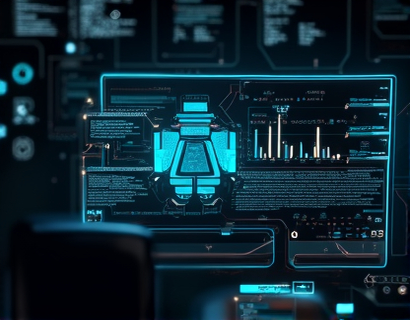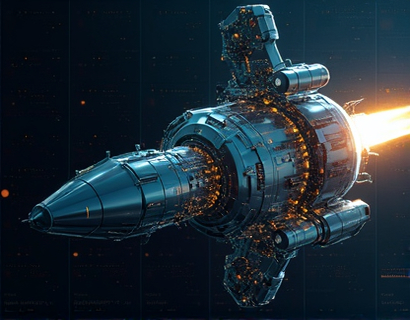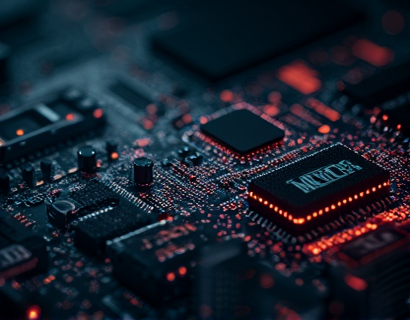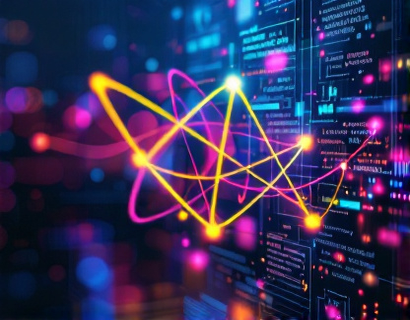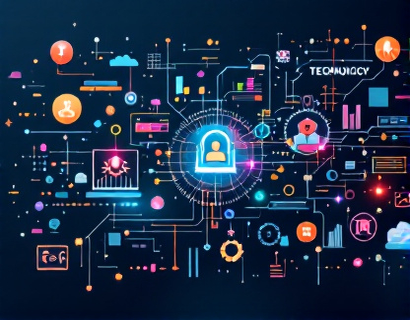Decentralized Transformation: Synergizing AI and Crypto for Next-Gen Digital Solutions
The intersection of artificial intelligence and cryptocurrency is giving rise to a new era of decentralized digital solutions. This transformation is not just about merging two cutting-edge technologies but about creating an ecosystem where user experience and engagement are paramount. As tech enthusiasts and early adopters delve into this space, understanding the synergy between AI and crypto becomes crucial for navigating the future of interconnected applications and services.
The concept of decentralization has been a cornerstone of blockchain technology, offering a paradigm shift from centralized systems to peer-to-peer networks. When AI is integrated into this decentralized framework, the potential for innovation is immense. AI's ability to process vast amounts of data, learn from patterns, and make intelligent decisions complements crypto's focus on security, transparency, and decentralization. Together, they form a powerful combination that can redefine digital interactions and services.
Enhancing User Experience through AI and Crypto
One of the most significant benefits of integrating AI and crypto is the enhancement of user experience. Decentralized applications (dApps) powered by AI can offer personalized and intuitive interactions. For instance, AI-driven chatbots on decentralized platforms can provide 24/7 customer support, handling queries and transactions with minimal latency. These chatbots can learn from user interactions, improving their responses over time and ensuring a more seamless experience.
Moreover, AI can optimize the user interface and user experience (UI/UX) of decentralized applications. By analyzing user behavior and preferences, AI algorithms can tailor the interface to individual needs, making the platform more user-friendly. This level of customization is particularly valuable in a decentralized environment where users expect control and flexibility.
Driving Engagement with Decentralized Rewards
Engagement is a critical factor in the success of any digital platform. Decentralized systems, enhanced by AI, can drive engagement through innovative reward mechanisms. Cryptocurrency tokens can be used to incentivize users to participate actively in the ecosystem. For example, users can earn tokens for contributing data, validating transactions, or participating in governance decisions. AI can optimize these reward systems by analyzing user behavior and adjusting token distributions to maximize engagement and participation.
Furthermore, AI can help in creating dynamic and adaptive reward structures. By understanding user motivations and preferences, AI can design reward programs that resonate more effectively with the target audience. This not only increases user retention but also fosters a sense of community and ownership among users, which is essential for the long-term success of decentralized platforms.
Security and Trust through Decentralization
Security and trust are paramount in the realm of cryptocurrency and decentralized applications. AI can play a crucial role in enhancing security measures. Machine learning algorithms can detect and mitigate potential threats in real-time, identifying anomalies and patterns that indicate malicious activity. This proactive approach to security is vital in a decentralized environment where traditional centralized security measures may not be applicable.
Decentralization itself contributes to security by eliminating single points of failure. AI can further strengthen this by optimizing the distribution of resources and ensuring that the network remains resilient against attacks. Smart contracts, which are self-executing contracts with the terms directly written into code, can be audited and verified using AI tools to ensure they function as intended and are free from vulnerabilities.
Efficient Data Management and Analytics
Data management and analytics are at the core of both AI and cryptocurrency. Decentralized platforms can leverage AI to manage and analyze large datasets more efficiently. AI algorithms can process and derive insights from data stored on the blockchain, providing valuable information for decision-making without compromising data privacy. This is particularly useful for applications in finance, supply chain management, and healthcare, where data integrity and security are critical.
AI-driven analytics can also enhance the performance of decentralized applications. By analyzing user interactions and system performance, AI can identify bottlenecks and optimize resource allocation. This ensures that the platform operates smoothly and efficiently, providing a better experience for users. Additionally, AI can predict future trends and user behaviors, enabling proactive improvements and innovations.
Interoperability and Cross-Chain Solutions
Interoperability is a key challenge in the decentralized ecosystem, where different blockchain networks often operate in silos. AI can facilitate cross-chain interactions, enabling seamless communication and data exchange between disparate blockchain platforms. This interoperability is essential for creating a unified and cohesive decentralized ecosystem where users can interact with multiple services without friction.
AI-powered middleware solutions can translate and standardize data formats, protocols, and smart contract logic, making it easier for different blockchain networks to work together. This not only enhances the user experience but also opens up new possibilities for collaboration and innovation across the decentralized space.
Future Prospects and Challenges
The synergy between AI and crypto holds tremendous promise for the future of digital solutions. However, there are also challenges that need to be addressed. Scalability remains a significant issue, as both AI and blockchain technologies require substantial computational resources. Developing more efficient algorithms and hardware solutions is crucial to support the growing demand for decentralized and AI-driven applications.
Regulatory challenges also pose a hurdle. As decentralized systems and cryptocurrency gain mainstream acceptance, regulatory frameworks need to evolve to ensure compliance and protect users. AI can assist in navigating these regulatory landscapes by providing insights and compliance tools, but human oversight remains essential.
Another challenge is the democratization of access. While AI and crypto offer powerful tools, there is a risk of creating a divide between those who have access to these technologies and those who do not. Efforts must be made to make these technologies more accessible and user-friendly, ensuring that the benefits of decentralized transformation are widely shared.
Conclusion
The integration of AI and crypto is paving the way for a new generation of decentralized digital solutions that prioritize user experience, engagement, security, and efficiency. As tech enthusiasts and early adopters continue to explore this exciting space, the potential for innovation and transformation is vast. By embracing the synergy between these technologies, we can unlock new possibilities and shape the future of digital interactions and services.













